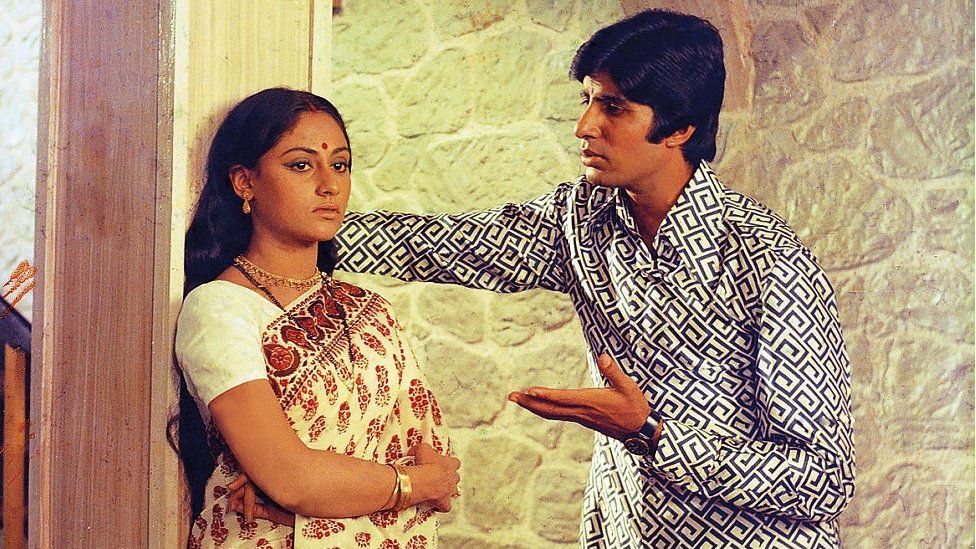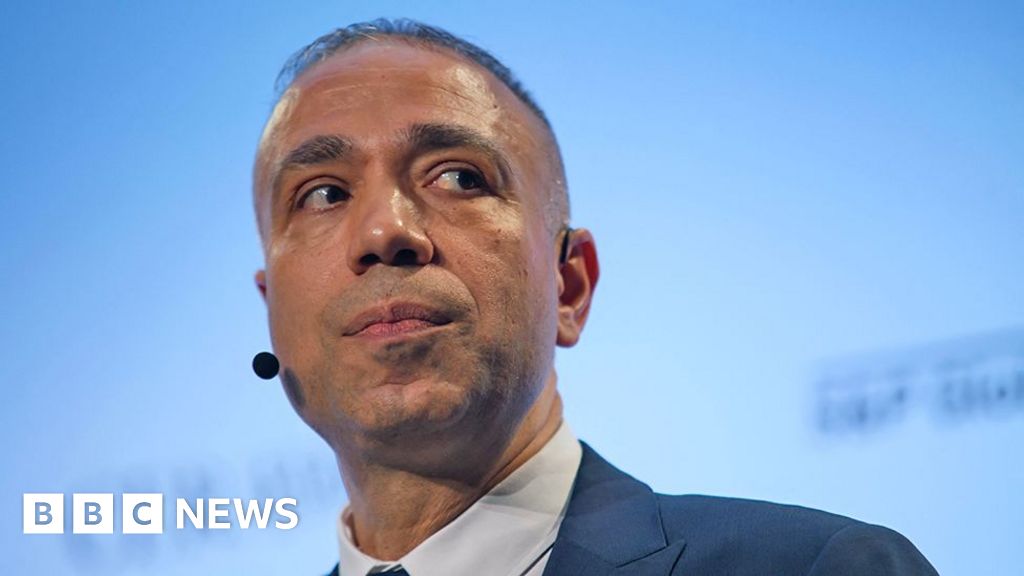ARTICLE AD BOX
 Image source, SMM Ausaja archive
Image source, SMM Ausaja archive
By Geeta Pandey
BBC News, Delhi
As the 1973 Bollywood hit film Abhimaan, with superstar Amitabh Bachchan and his wife Jaya in the lead, turns 50 this year, the BBC examines the enduring charm and impact of this movie.
Amitabh Bachchan is best-known for his role as the angry young man of Bollywood who starred in such iconic films as Deewar, Zanjeer and Sholay.
But many consider Abhimaan (Pride) - the musical drama about the fragility of human relationships - to be among his finest roles.
The actor plays a popular singer who convinces his new wife to join him on stage, but his ego is hurt and jealousy takes over when she outshines him.
Director Hrishikesh Mukherjee paired Bachchan with his wife Jaya - the couple were in love and had married just a month before its release - and she won the prestigious Filmfare Award for Best Actress for her performance.
Abhimaan, which completes half a century in July, has a special significance for me - it was the first-ever Bachchan film I saw and it remains my favourite of all his films even today.
It was among more than half a dozen Bachchan films to release that year. The list included Saudagar, which was India's official Oscar entry that year, and Zanjeer, the blockbuster which established him as India's top action hero.
But film critic and author Saibal Chatterjee told the BBC that "Abhimaan was the most talked about film of the year" and "his biggest hit that year".
Fans visited cinemas in droves, entire families including parents and young children packed theatres, crowding the matinee and evening shows.
Theatre actress and a self-confessed "huge Bachchan fan" Monisha Bhaskar says the "evergreen story" of the envious husband unhappy at the success of his wife touched a chord with the audiences "because it is rooted in reality".
"Abhimaan's story was very believable because ego often comes between a couple, especially in a society like India where most men are uncomfortable with their wives doing better."
Image source, SMM Ausaja archive
"Ironically," she says, "it was he who first encouraged her to sing, but then couldn't handle it when she became more popular than him. But she was not competing with him, she was just more gifted."
Ms Bhaskar, who was four when her parents took her to watch the film when it released, in a Delhi cinema, has revisited it several times since.
"Of course I didn't understand it the first time, but I enjoyed the music and the songs. I've watched it many times since then and I've loved it each time a bit more," she told me.
Ms Bhaskar considers the role to be among "Bachchan's finest performances" and says that Jaya, as the suffering wife, was "very believable" and the "music was fabulous and the songs took the story forward".
Over the years, Abhimaan has won high praise from fans, critics and Bachchan couple's colleagues in the film industry.
Filmmaker Karan Johar has called it "one of my favourite films" and says he cries "every time I see it". A few years back, actress Vidya Balan confessed to watching it for the "nth time" and described it as a "timeless" film. In December 2022, the Kolkata International Film Festival kicked off with this classic.
Bachchan himself has spoken fondly about Abhimaan, describing it as "the film that brought Jaya and me together for a most memorable creative in our respective careers" and said that its songs still "remain haunting and a dream for many".
Mr Chatterjee says Abhimaan will always be discussed as "a high point" of Bachchan's career because it was "a film where he was not just made to fit the masculine, angry young man template".
"This was one role that showed a side of him which was different. He played a very real hero, a real man prone to insecurities and jealousies. And it demonstrated his versatility as an actor, it showed that he could play any role that a director wrote for him."
The enduring charm of the film, he says, is also because Bollywood marital dramas "often tend to be very shrill and loud", but Abhimaan was different, "it was very subtle and had an understated quality to it".
Over the years, many have speculated whether the film was based on the relationship of its stars - Jaya was already an established actress while Bachchan was a newbie in Bollywood. Comparisons have also been made with sitar maestro Ravi Shankar and his first wife Annapurna Devi, an equally talented sitarist.
Image source, SMM Ausaja archive
But director Mukherjee denied those links - instead, he said his film was based on the life of legendary Bollywood singer Kishore Kumar and his first wife Ruma Devi, a successful actress and singer in Bengali film industry.
"Ruma was no less talented and since Kishore had a bit of a struggle early in his career, he was always conscious of her gifts as a performer," Mukherjee told an interviewer.
Although Mukherjee never acknowledged it, his film has also drawn comparisons with A Star is Born - the story of the insecure husband has been adopted by Hollywood four times, from its first outing in 1937 to the latest version in 2018 starring Lady Gaga and Bradley Cooper.
Mr Chatterjee says Mukherjee was "an avid film watcher" and "must've seen" A Star is Born.
"But it's a story that is universal and probably as old as the institution of marriage itself. And what is important is that Mukherjee made it an Indian story. He gave it the Indian-ness that it needed. The film doesn't look like a western import, it's culturally rooted, which gives it value."
Today, some feminists criticise the film for portraying Jaya as a meek and submissive wife, who doesn't stand up for her own rights, and for whom her husband always comes first.
But Ms Bhaskar says that in the time period the film was made, it had a message for both men and women which remains relevant even today, 50 years later.
"I don't know how many men got it but Abhimaan's message was clear - that jealousy and ego have consequences. And the message for women was not to take rubbish from their husbands beyond a point."
She points out that Jaya's character leaves him and returns to her village when he behaves badly.
"She's sad and depressed, she has a miscarriage, but she has enough self-respect to not reach out to him or plead with him to take her back. She goes back with him on her own terms - only when he comes to take her, when he acknowledges that he's been wrong."
In the time period it was set in, she says, it was "usual" for films to have a happy ending and the audiences wouldn't have accepted otherwise, but Abhimaan was "unusual" in the sense that "it showed the man to be the weaker of the two, he's the one who can't cope when the limelight shifts to his wife".
And Bachchan, with his remarkably real performance of a "very flawed" character, made it his own.

 1 year ago
21
1 year ago
21








 English (US)
English (US)